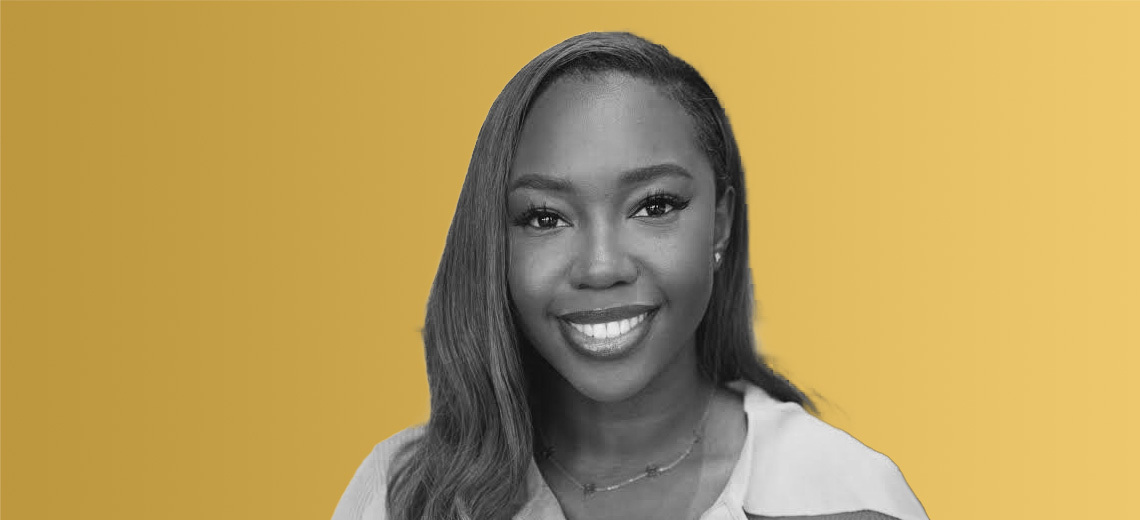This is an episode of the Glossy Beauty Podcast, which features candid conversations about how today’s trends are shaping the future of the beauty and wellness industries. More from the series →
Subscribe: Apple Podcasts • Spotify
Olamide Olowe is a born entrepreneur.
The Topicals skin-care founder grew up in an entrepreneurial household and pursued track running, which enabled her to earn a scholarship to UCLA, where she initially studied pre-med to become a dermatologist. Topicals was born after Olowe’s college roommate revealed a family connection to SheaMoisture. On the latest episode of the Glossy Beauty podcast, Olowe said she learned that skin care, dermatology and beauty could be made accessible over the counter. The name Topicals serves a dual function because it means both something applied on the skin and something that is culturally relevant or topical. Topicals is dedicated to helping chronic skin issues like eczema and psoriasis for all types of consumers and is sold through Sephora and its DTC e-commerce.
Topicals has received wide praise since its launch in 2020, including being honored by Allure’s Best of Beauty in 2023 and Women’s Health 2023 Skincare Awards, among others. But the journey to get there was not easy. Just like many other female and BIPOC-founded brands, Topicals had a difficult fundraising experience, at first. But the brand went on to raise $15 million in outside funding.
On the latest Glossy Podcast, Olowe spoke with Emma Sandler, beauty and wellness editor at Glossy, about her entrepreneurial vision for the beauty industry, Topicals’ early entry into Sephora and streetwear culture’s influence on her business. The below excerpts have been lightly edited and condensed for clarity.
Launching the brand in 2020
“[It was] extremely stressful. I always say now in therapy that I’ve become the master compartmentalizer because so many things that have been hard in this journey didn’t seem hard to me at the time. My track background, and being able to endure hard and painful workouts and quiet my mind on race day, helped me through 2020. There was issue after issue, whether it was the supply chain or the lack of funding for young Black women at the time or the fact that people were getting sick. What I am so proud about is that we’ve thrived regardless of what’s been going on in the world, and we’ve be been able to create a community that means something to people.”
Getting into Sephora
“Sephora had heard about us because in August 2020, when we launched, we sold out in 48 hours at Nordstrom. We had a limited edition pop-up with Nordstrom. I think a lot of the retailers at that time perked up because in 2020 [they asked] how this unheard-of brand sold out in 48 hours and targeted a specific audience that a lot of people had forgotten about. But then the second fold is I had really great advisors, including Divya Gugnani, CEO of Wander Beauty, who now has a fragrance company called Five Senses. She has been an advisor of the company since before we launched, and she had a really great relationship with Sephora and introduced us to the buyers there.
I love LinkedIn, and I think that if you use LinkedIn correctly, you can get in front of anyone. I connected with a retail consultant to ask her questions about getting into retail. She ended up taking us on as a client and, when we were looking to fundraise in the summer of 2020, sent out our deal to her network. And we connected with a plethora of female investors who are the reason why we were able to raise our original $2 million.”
Establishing the idea of skin neutrality
“Beauty is such a rigid thing; it’s hard to penetrate and change. I never put pressure on myself or our team to fully change what the beauty industry has done to our minds. But what we can do is try our best to question and to provide information to our audience to make choices. We’re not telling you that you should love your skin, no matter what happens, even if it’s painful or a flare-up that is causing you anguish. Our idea of skin neutrality is that skin is skin. It’s neither moral nor immoral. It’s neither good nor bad. If you are someone who wants to get your lips done, whether you want to get a Brazilian Butt Lift or you’re someone who doesn’t want to wear makeup at all, there isn’t a wrong or right answer in your choice and quest for beauty. Sometimes, we have seen that the pendulum can swing from being extremely harsh and judgmental about what a woman should look like to being harsh and judgmental when a woman chooses to look a specific type of way. Again, our idea of skin neutrality and beauty neutrality is this idea that choice is queen.”




